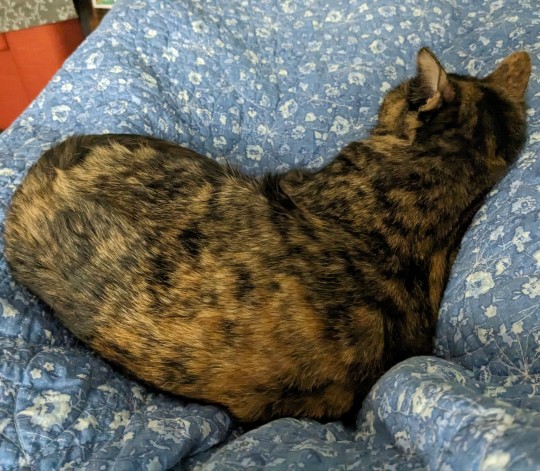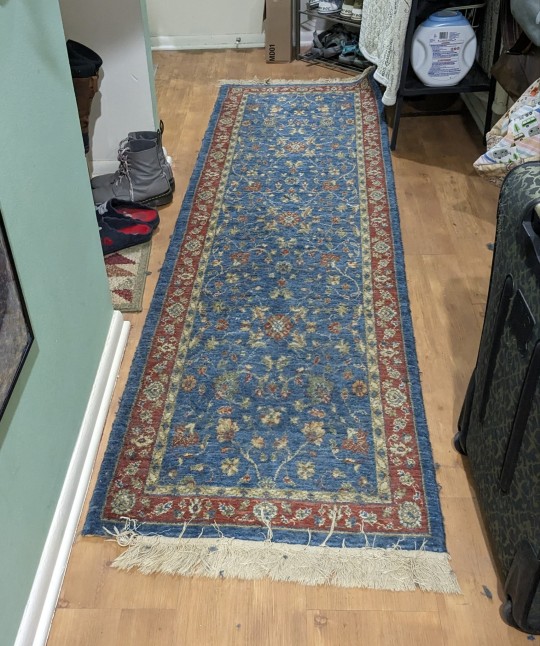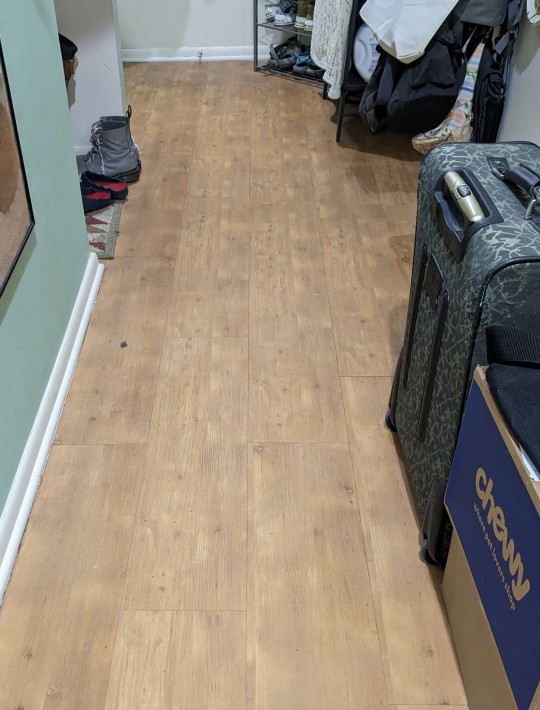#Malabari
Text
want to date someone from north kerala so i can call myself Malabari Banger.
0 notes
Text



the paradesi synagogue in kochi, kerala, india. the first synagogue on the site, built by the city's longstanding malabari jewish community, was destroyed by portugese who'd colonized the area in their persecution of locals. it was rebuilt in 1568 by spanish and portugese jews who fled persecution and later expulsion, hence the name "paradesi" ("foreign" in malayalam).
these sephardic jews and a community of jews of mixed african and european descent who were formerly enslaved ("meshuchrarim", "freedmen" in hebrew) joined the malabari jewish community of kochi and somewhat integrated. they were later joined by some iraqi, persian, yemenite, afghan, and dutch sephardic jews. the middle eastern and european jews were considered "white jews" and permitted malabari jews and meshuchrarim to worship in the synagogue. however, in what seems like a combination of local caste dynamics and racism, malabari jews were not allowed full membership. meshuchrarim weren't allowed in at all, but were instead made to sit outside during services and not allowed their own place of worship or other communal rights.
as the "white jews" tended to be rather wealthy from trade, this synagogue contains multiple antiquities. they include belgian glass chandeliers on its walls, hand-painted porcelain tiles from china on its floors, and an oriental rug that was gifted by ethiopian emperor haile selassie.
#india#architecture#interior#worship#jewish#sephardic#mizrahi#abrahamic kerala#my posts#this seems like a combo of european racism & s asian casteism but idk anything abt castes so idk how right i am#imo the attitude of the paradesi sephardim sort of echoes what went on w/ portugese & st thomas christians#though they were also influenced by ''jewish racism'' (someone not being an ''authentic'' jew or 100% jewish in lineage)#also its interesting that most paradesi jews who left india went to other commonwealth countries while most malabar jews went to occupied#palestine (for the same reason indian muslims went to pakistan more or less). something something the west's unwanted refugee dumping groun#also i'm not saying the portugese didn't persecute against locals who practiced other religions just that there was a Very Specific type of#persecution st thomas christians and malabari jews faced from them#one more thing: i think most americans dont know (and western europeans like to forget) that the transatlantic slave trade went into#western europe as well. even if most w euro countries outlawed slavery before the us did#and also that ‘white’ has never had a linear definition (yemenites are very not ‘white’-looking to the average american)
47 notes
·
View notes
Photo

Malabari Chicken Stew Recipe
The time-tested combination of chicken breasts, potatoes, and onions takes a turn to the east with this Indian-inspired, flavorful and creamy stew made with coconut milk and lots of interesting spices.
0 notes
Text

Tomato-Egg Soup. Vitamin A, Vitamin C, Vitamin K, and Vitamin E as well as fiber, minerals, and beneficial antioxidants are found in abundance in tomato soup Read full recipe https://foodrecipesoffical.com https://foodrecipesoffical.blogspot.com/2023/12/488-healthy-food-recipe-tomato-egg-soup.html… http://foodrecipesoffical.blogspot.com
#Methi Murgh#Honey Garlic Chicken Wing Sauce#Chicken Pasta#Murgh Chandni#Keema Sallie#Chicken Dhansak#Egg Roll#Chicken Shanghai Roll#Chicken Manchurian#Green Moong Chicken#Curd Chicken Tikka#Malai Chicken Tikka#Jalwa Kebab#“Old Monk Chicken”. Malabari Fish Curry#patrani fish#Nawabi Tangdi Kulfi Mexicana#Barbecued Chicken Salad#Chicken Schezwan#Angel's Bite#Pickled Shrimp Salad Recipe#Classic Egg Sandwich#omato#Egg#Soup#Broth#Parmesan#Basil#Garlic#Onion#Carrot
1 note
·
View note
Photo

Malabari Chicken Stew
The time-tested combination of chicken breasts, potatoes, and onions takes a turn to the east with this Indian-inspired, flavorful and creamy stew made with coconut milk and lots of interesting spices. 2 tablespoons plain yogurt, 1 tomato diced, 2 teaspoons ground coriander, 2 teaspoons ginger garlic paste, 1/2 cup water, 3 large potatoes cubed, 2 bay leaves, 1 teaspoon ground black pepper, 1/2 teaspoon ground turmeric, 1 piece cinnamon stick, 2 carrots diced, 4 skinless boneless chicken breast halves cubed, 3 fresh green chile peppers sliced, 1 tablespoon heavy cream, 1/2 teaspoon salt or to taste, 2 tablespoons extra-virgin olive oil, 3 whole cardamom pods, 2 onions sliced, 3 whole cloves, 1.5 cans coconut milk
0 notes
Photo

Malabari Chicken Stew Recipe
The time-tested combination of chicken breasts, potatoes, and onions takes a turn to the east with this Indian-inspired, flavorful and creamy stew made with coconut milk and lots of interesting spices.
0 notes
Photo

Stews - Malabari Chicken Stew
The time-tested combination of chicken breasts, potatoes, and onions takes a turn to the east with this Indian-inspired, flavorful and creamy stew made with coconut milk and lots of interesting spices.
0 notes
Text





Happy first day of National Clean Your Home Month! (National Novel Writing Month novelists, happy first day to you as well!)
[ID: Five images; top left, potatoes and chickpeas in golden brown sauce on a round of flatbread. Top right, Dearborn the Tortie is lying on a blanket in my lap, propped up by my legs, looking like a boomerang. Bottom images are, left and center, before-and-after of my front hall, first with a raggedy blue carpet and then clean and carpetless, and bottom right is my newly cleaned kitchen floor.]
Started this morning with what looks like a weird deconstructed apple pie but is actually flatbread topped with curried potatoes and chickpeas (lest you think I'm fancy, it's Trader Joe's Malabari Paratha topped with Tasty Bite Bombay Potatoes). Dearborn is unimpressed by cleaning but she is extremely Shaped. Still, after eating I gave her about half an hour of cuddles, then set to work!
I normally clean before showering because you do get grimy, but I noticed last year that my pajamas are not ideal for cleaning in, so I set aside an outfit to change into, which leaves arms and legs mostly bare and doesn't drape much -- yoga leggings tucked up above the calf and a tight tank top. I'm amusedly referring to it as my Slutty Maid outfit.
Anyway, this morning I put on 99% Invisible's "Devolutionary Design", about Devo's first album cover, and set to work. Polk has been destroying the hallway rug, and the kitchen rug was disgusting, so I pulled both up, rolled 'em up, and tossed them, then cleaned the floors. A coating of goo-gone for old carpet tape residue followed by a brief sponge scrub, then a spritz of Grease Lightning cleaner-degreaser and a scrub with the steam mop for both the hall and the kitchen, had them looking at least better.
Cleaning is complicated by the Kitchen Protocol I've had to introduce; the kitchen has a wheat weevil issue, which is pernicious but oddly benign -- after having mice several years ago, all my food is always contained in either a sealed jar/tupperware or its original packaging and they haven't actually ever got into the food, they just live under the kitchen linoleum. In any case, any kitchen cleaning I do in a day has to be the last cleaning I do, and anything coming out of the kitchen first needs to be treated with undilute white vinegar, then rinsed and treated a second time with bleach, to prevent spreading the weevils to other areas of the house. I'm also spraying down all the floors with dilute vinegar frequently.
Anyway, the steam mop is now out of commission until its freshly bleached fabric pad dries, but it did take me exactly the length of the podcast to set up, clean, and clear away the cleaning supplies/wash the sponge afterward, so I'm pleased with the day's work.
Disposable nitrile gloves used count: 1.
Tomorrow's tasks: vacuum all over, then figure out the carpet shampooer I was given, and if I manage that, shampoo the rugs.
159 notes
·
View notes
Text
In Israel, you’ll find a patchwork of different communities. Most Israeli Jews originate from Europe, North Africa and the Middle East, but some come from other regions, such as India.
According to the Indian Embassy in Tel Aviv, there are about 85,000 Jews of Indian origin in Israel — so Indian Jews make up just 1.2% of Israel’s Jewish population. This small community is divided into four groups: the Bene Israel from Maharashtra, the Cochin Jews from Kerala, the Baghdadi Jews from Kolkata, and the Bnei Menache from Mizoram and Manipur.
Although I grew up in the U.S., my mother’s family is from the Cochin Jewish community in Israel. I wanted to find out more about how this community is preserving our unique Jewish traditions from the South of India.
Many of these traditions are at a risk of dying out. For example, the language of the Cochin Jewish community is called Judeo-Malayalam. Today, this dialect has only a few dozen native speakers left (you can hear it spoken in this video).
According to legend, the first Jews arrived in Cochin during the time of King Solomon. The oldest physical evidence of their presence is a set of engraved copper plates dating from around 379-1000 CE, which were given to community leader Joseph Rabban by the Chera Perumal dynasty ruler of Kerala.
Jewish sailors originally arrived in Kodungallur (Cranganore), an ancient port city known as Shingly by Jews, before shifting to Cochin following a flood in 1341. These Jews became known as the Malabari Jewish community. After the expulsion of Jews from Spain in 1492, a group of Sephardic Jews also came to Cochin, and became known as the Paradesi (Foreign) Jews. The Malabari and Paradesi Jews historically lived separately and maintained their own traditions, although in modern times this division has become less important.
Today, the vast majority of Cochin Jews live in Israel. I spoke with several community members to learn about current projects in Israel to preserve Cochini Jewish culture.
Hadar Nehemya, a jazz musician and performer, runs a food delivery service sharing traditional Cochin Jewish recipes. Hadar learned the art of cooking from her mother, who learned it from her paternal grandmother.
Cooking her dishes from scratch and selling them at markets and for delivery, Hadar’s goal is to introduce Cochini cooking into the mainstream of Israeli culture. “Many Israelis don’t know much about Cochin Jewish culture. Maybe they met a Cochini person in the army,” she said. “But Indian food is popular in Israel, because Israelis love to visit India after they finish their army service.”
Cochin Jewish cuisine is similar to other types of South Indian cuisine, but also has influences from Iberian and Middle Eastern cooking. One example is pastel, pastries with a spicy filling that are similar to empanadas. Other staples include fish and egg curries, chicken stew, black-eyed pea stew, dosa (thin rice pancakes) and dishes cooked with coconut and mango.
Hadar’s favorite dishes to cook are idli and sambar, which are often eaten together. Idli is a type of savory rice cake, while sambar is a spiced lentil stew. Although Hadar says it’s difficult to maintain an Indian food business from an economic perspective, she’s passionate about cooking and enjoys creating homemade dishes with the right balance of spices.
Along with cooking, music is also important in Cochini culture. In most religious Jewish communities, women aren’t permitted to sing in front of men who aren’t their immediate relatives. However, this prohibition was not part of the Cochini tradition.
In the Cochin Jewish community, women have sung in Hebrew and Judeo-Malayalam for centuries. Piyyutim (liturgical poems) were sung in the synagogue or at people’s homes during holidays. Judeo-Malayalam folk songs were sung at weddings and special occasions, and the lyrics of these songs were recorded in notebooks to hand down to future generations. Later, many women also learned Zionist songs in preparation for moving to Israel. I have memories of my own grandmother singing these songs at home.
In recent years, audio recordings have been produced of Cochini songs, including a collection called “Mizmorim” (Psalms) featuring Hadar’s grandmother, Yekara Nehemya. Hadar then created her own version of one of the songs, “Yonati Ziv.”
Today, community leader Tova Aharon-Kastiel has organized a choir which meets once or twice a month at different locations. In the choir, Cochini and non-Cochini women, mostly aged 65-85, sing songs in Hebrew and Judeo-Malayalam. The older generation is eager for the younger generation to get involved, but since most younger Cochin Jews have a mixed background and are assimilated into mainstream Israeli culture, this is sometimes proving a challenge.
Still, many young Cochin Jews are eager to connect with their roots. The community maintains several Facebook groups, including one specifically geared towards the younger generation. The group description reads: “If you are a young Cochini, you surely know (at least partially) the wonderful heritage of our forefathers and mothers… the sad truth is that this heritage is currently on its way to pass from the world.”
Shlomo Gadot is the CEO of Inuitive, a semiconductor company, and is actively involved with Cochini community projects. His nephew, Ori, runs the Facebook group for the younger generation. Shlomo says events are regularly held at the Indian Embassy in Tel Aviv for young Cochinis. “Normally the embassy gives them their office in Tel Aviv, and they invite the young Cochini people to come there and do a trivia contest,” he said. “They do it twice a year, once at Hanukkah and once at Passover.”
According to Shlomo, the embassy also has initiatives to create connections between Indian and Israeli tech companies. “Sometimes they invite people to the ambassador’s house or office to see how they can create connections between Israeli and Indian companies,” he said. “They also have a program to bring young people to India to help them get to know India better.”
Anil Abraham is one of the few Cochin Jews with recent memories of life in India. Born in Jerusalem, his family returned to India when he was 8 years old, and he lived there until age 35 before migrating back to Israel. He says he found growing up Jewish in India difficult, but rewarding. “It was very difficult to move there from Israel and learn Malayalam,” he said. “But it was amazing to be part of the community and enjoy Cochini food prepared from scratch. We used to attend prayers in the Paradesi Synagogue, because right now there are fewer than 20 Jews in Kerala.”
Today, Anil runs tours of Kerala for the Cochin Jewish community and others. “The kids travel with their parents and grandparents to India,” he said. “That’s how our traditions are passed down.”
16 notes
·
View notes
Text
Gulf migration is not just a major phenomenon in Kerala; north Indian states also see massive migration to the Gulf. Uttar Pradesh and Bihar accounted for the biggest share (30% and 15%) of all Indian workers migrating to GCC1 countries in 2016-17 (Khan 2023)—a trend which continues today. Remittances from the Gulf have brought about significant growth in Bihar’s economy (Khan 2023)—as part of a migrant’s family, I have observed a tangible shift in the quality of life, education, houses, and so on, in Siwan. In Bihar, three districts—Siwan, Gopalganj, and Chapra—send the majority of Gulf migrants from the state, mostly for manual labor (Khan 2023). Bihar also sees internal migration of daily wagers to Delhi, Bombay, and other parts of India. Gulf migration from India’s northern regions, like elsewhere in India, began after the oil boom in the 1970s. Before this time, migration was limited to a few places such as Assam, Calcutta, Bokaro, and Barauni—my own grandfather worked in the Bokaro steel factory.
Despite the role of Gulf migration and internal migration in north Indian regions, we see a representational void in popular culture. Bollywood films on migration largely use rural settings, focussing on people who work in the USA, Europe, or Canada. The narratives centre these migrants’ love for the land and use dialogue such as ‘mitti ki khusbu‘ (fragrance of homeland). Few Bollywood films, like Dor and Silvat, portray internal migration and Gulf migration. While Bollywood films frequently centre diasporic experiences such as Gujaratis in the USA and Punjabis in Canada, they fail in portraying Bihari migrants, be they indentured labourers in the diaspora, daily wagers in Bengal, or Gulf migrants. The regional Bhojpuri film industry fares no better in this regard. ‘A good chunk of the budget is spent on songs since Bhojpuri songs have an even larger viewership that goes beyond the Bhojpuri-speaking public’, notes Ahmed (2022), marking a context where there is little purchase for Gulf migration to be used as a reference to narrate human stories of longing, sacrifice, and family.
One reason for this biased representation of migration is that we see ‘migration’ as a monolith. In academic discourse, too, migration is often depicted as a commonplace phenomenon, but I believe it is crucial to make nuanced distinctions in the usage of the terms ‘migration’ and ‘migrant’. The term ‘migration’ is a broad umbrella term that may oversimplify the diverse experiences within this category. My specific concern is about Gulf migrants, as their migration often occurs under challenging circumstances. For individuals from my region, heading to the Gulf is typically a last resort. This kind of migration leads to many difficulties, especially when it distances migrants from their family for much of their lifetime. The term ‘migration’, therefore, inadequately captures the profound differences between, for instance, migrating to the USA for educational purposes and migrating to the Gulf for labour jobs. Bihar has a rich history of migration, dating back to the era of indentured labor known as girmitiya. Following the abolition of slavery in 1883, colonial powers engaged in the recruitment of laborers for their other colonies through agreements (Jha 2019). Girmitiya distinguishes itself from the migration. People who are going to the Arabian Gulf as blue-collar labourers are also called ‘Gulf migrants’—a term that erases how their conditions are very close to slavery. This is why, as a son who rarely saw his father, I prefer to call myself a ‘victim of migration’ rather than just a ‘part of migration’. It is this sense of victimhood and lack of control over one’s life that I saw missing in Bollywood and Bhojpuri cinema.
— Watching 'Malabari Films' in Bihar: Gulf Migration and Transregional Connections
#bhojpuri indentured history#malayalam cinema#bihari labour migration#gulf migrant labour#malayali labour migration#bollywood cinema#bhojpuri cinema#nehal ahmed
21 notes
·
View notes
Text



kadavumbagam synagogue in kochi, kerala, india. it's also known as the "cochin blossoms synagogue" for its floral details.
malabari jews trace their origins to jews who'd come to present-day kerala from the middle east from antiquity. the synagogue was renovated in 1700, but the original dates back to the 12th-13th centuries. it was said to have been built by jews who'd fled persecution to kochi's ernakalum district. the specifics of the story vary.
after a period of abandonment beginning in the 1970s, it was restored in 2018 by local josephai "babu" elias and is now in use again. it's currently the oldest functioning synagogue in india.
#india#kerala#architecture#interior#worship#jewish#mizrahi#abrahamic kerala#my posts#it's also the oldest functioning synagogue in the commonwealth countries but that's not a really high bar#england kicked out jews for a few hundred years until the renaissance period when they let some sephardim in#everywhere else either had ancient jewish communities that are long gone and/or didn't have extant jewish communities until#the 1500s or later or never had jewish communities at all#except for nigeria (igbo jews) but this ones still the oldest
159 notes
·
View notes
Text
Best Breakfast in Kozhikode at 1980’s A Nostalgic Restaurant
Delicious Kerala food in Kozhikode with laid back dining experience, comfortable seating for big groups and nostalgic 1980’s Malayalam music.
Located in the heart of Kozhikode, the small industrial-looking entrance to 1980’s Restaurant opens into the elegant interiors inspired by a traditional Kerala house with a beautiful central courtyard and massive dining space – complimented with lip smacking Malabari cuisine of breakfast, lunch and dinner.
The 1st branch of the 1980’s A Nostalgic Restaurant started 8 years ago on the Kalpetta…

View On WordPress
#1980&039;s nostalgic restaurant#1980&039;s nostalgic restaurant Calicut#1980&039;s nostalgic restaurant Kozhikode#best breakfast in Calicut#best breakfast in Kozhikode#best kerala breakfast in Kozhikode#breakfast at 1980&039;s nostalgic restaurant
2 notes
·
View notes
Text

Garlicky and cheesy bread. Garlic bread is an incredibly delicious and flavorful combination of butter, garlic, and bread. Read full recipe
foodrecipesoffical.blogspot.com
#Methi Murgh#Honey Garlic Chicken Wing Sauce#Chicken Pasta#Murgh Chandni#Keema Sallie#Chicken Dhansak#Egg Roll#Chicken Shanghai Roll#Chicken Manchurian#Green Moong Chicken#Curd Chicken Tikka#Malai Chicken Tikka#Jalwa Kebab#“Old Monk Chicken”. Malabari Fish Curry#patrani fish#Nawabi Tangdi Kulfi Mexicana#Barbecued Chicken Salad#Chicken Schezwan#Angel's Bite#Pickled Shrimp Salad Recipe#Classic Egg Sandwich
0 notes
Text
ROUND 1 POLL 98 SIDE A

About the NPCs:
Juggles is a clown working for the One-Ring circus. While he's only recently begun juggling, he's quite the prodigy.
Otherwise known as: ジャグラー (Japanese); Jojo (German); Malabari (Spanish); Pimpon (French); Giocolino (Italian); Jottem (Dutch)
Plover is a Targent agent who joined when Targent came to his hometown of Phong Gi.
Otherwise known as: シギ (Japanese); Geier (German); Chorlit (Spanish); Épervier (French); Cornacchia (Italian); Buyzerd (Dutch)
#professor layton#pl#juggles pl#plover pl#professor layton and the azran legacy#professor layton and the miracle mask#round 1#side a
4 notes
·
View notes
Text
Fireflies Over The Wall - Chapter 11
Relationship: The Bell Keeper & Meiri (Original character)
Summary: "The troll brought with herself, every night without a fault, a baby.
Every night, she placed it upon the grass, and pointed upwards, showing her baby the stars and constellations. Showing her baby the fireflies.
Holding it tight. Cuddling with it. Making sure it saw the beauty the world had to offer. He had never considered himself a sentimental man. Yet this image, for some reason, never failed to make him return home feeling something gaping and void inside of himself.
Every one of his former coworkers must have returned to their families.
Who would Edmund return to when he could work no more?
What would give him a reason to get out of bed when the fireflies were no longer enough?"
An OC's origin story as well as a Bell Keeper character study, because this character is much more fascinating than I'd been giving him credit for.
Notes: Title from ‘Monster’ by dodie
Many thanks to @blaithnne who taught me that you can add another - to the - and make it a –. No, it wasn’t obvious to me. Leave me alone 😭
Chapter title: I’ve said my speech through sharpened teeth
Read it on ao3
For all that had been said, not a lot of ‘change’ had gone on in their lives. Edmund still worked as a bell keeper, though there were less and less of his colleagues every day, he still didn’t go out much even if he was putting an effort – reluctantly, but he was – into connecting with more people outside of just Kaisa, and he still thought cucumber sandwiches were a perfectly acceptable lunch. Meiri still popped around whenever she felt like to play and talk (further proving that the orphanage crew really couldn’t stop her from doing anything at all), still slowly evolved towards opening up, and still denied vehemently the possibility of white bread with scarce vegetables being a nutritious meal.
And while on the topic of continuity, the troll mother and baby still came to that same spot near the wall almost every night. A good deal of mushrooms had grown around, which meant that now Edmund was even more helpless not to smile when he watched the stone child play with them. They had changed, though. The kid was learning how to utter sounds, now; mostly variations of ‘ah’ or ‘bah’ that he’d hear them say it every now and then, making him come to the strange realisation that he was being witness to the growing process of a creature he was supposed to be protecting the city against.
Ah, well. At least he could say he had two kids in his life, one way or another.
It was only a shame that he only had that to entertain him during the night. The days remained as boring as ever, considering there were no trolls, no fireflies, and Meiri was generally at school. She wasn’t one to ditch class, and even if she were, she probably knew he wouldn’t endorse it and go somewhere else should she ever decide to slip away.
Which was why Edmund was so startled – almost to the point of falling off the wall, mind you, a situation exclusive to when the girl popped up without a notice – when he heard his cabin’s door bang on an early Saturday morning when she should probably have been on her science program activities. Or something. He still didn’t really understand how those worked.
No one was around; someone very rarely was. So Ed didn’t think three times about going down there to check what was going on, since it could only possibly be Meiri causing that noise. She was the only one who he had ever given a key to.
He did, of course, think twice, because if only Meiri had it, then it could very well be a burglar and even if he was confident he could win in a physical fight, he’d still rather avoid it; he wasn’t in the mood. But also because if it really was Meiri, then chances were she was not in a good mood and it would be playing with fire to try to talk to her depending on how true that was.
So, after a moment, away from his post he went to practise some freestyle malabarism with torches.
His door had been closed, but left unlocked. After the way it had been banged so loudly that he had been able to hear it, that had been the second sign that something was wrong. Meiri would usually lock the door after coming inside if she knew it had been locked before. He walked in making as little noise as possible, not seeing anyone on his couch, trying to reach his kitchen counter, looking disapprovingly at his fridge contents, nor perusing his bookshelves. Sign that something was wrong number three.
“Go away!” Said an obviously distraught voice from his second floor. Sign that something was wrong number four.
Or, well, proof that something was wrong at this point, he supposed.
“Meiri, if you want to be alone, I can leave you to yourself. But only if you come down here and promise to stay here while I’m away. There are cutting things up there, I’m not leaving on your own with them.”
After they’d come to their agreement, Edmund had cleared the first floor of most anything that could bring harm to a six – now seven – year old child. Save for cutlery, of course, it’d be ridiculous to take those to his bedroom, and he was counting on his cupboard’s height to gatekeep them from her for the near future. But he hadn’t actually done anything to make sure they were inaccessible should Meiri ever go to the second floor. Which now felt like an oversight.
“Fuck off!”
The months that had passed had brought more opportunities for Meiri and Kaisa to interact. Some of the appeal that the witch had held in her eyes seemed to have faded, being switched into suspicion every time she failed to hide her magic and annoyance every time she failed to hide her idiocy. But the connection between a young girl and the cool older woman they’d picked as a role model was no fickle thing, so even if Edmund managed the colossal effort to not swear in front of her, it was all in vain and she’d picked up a thing or two. Edmund walked towards the ladder with as much dignity as he could manage while being told off in his own house by a kid a quarter of his size.
“That’s no way to talk, young miss! I see you’re upset but there are better ways to handle this.”
He climbed up the ladder, needing only to climb three steps until he could catch a glimpse of the girl. She was curled up beside his bed in her typical distress position, but lifted her head to glare at him with red eyes as the creak of the ladder denounced his approach. There were no tears running down her face, but that didn’t make her look any less upset, her mouth curled back and the lines of her face sharp.
“Leave me alone!” She snapped as Edmund raised himself into the second floor, not standing up since he’d loom over her but rather sitting on his heels with some two metres between the two of them. He was dangerously close to the edge of the platform; an unforeseen imbalance could tip him to fall backwards into what would be a very ugly fall. But Edmund didn’t think Meiri would feel comfortable if he got any closer. She already didn’t.
“Meiri, talk to me. What happened?”
“None of your business!” Was the angry answer to his levelled question. “None of it is!”
Now, Edmund had never considered himself the most patient of men. Nor the calmest. But even though her words were clearly meant to sting, they couldn’t hit their mark. Not when he knew her so well. Not when he could see that she was only a child, too young to properly process everything that was going on around and inside her. Especially not when he could see her eyes, staring at his defiantly. Angry, but not in a cold way. Like an animal lashing out.
Her voice kept raising in volume, and he wasn’t sure if it was intentional or if she’d just lost control over that in her anguish.
“You’re always bothering me! You keep asking me stuff you can’t possibly care about, and telling me things that I don’t care about!” Her shouts rang loudly in the cabin, echoes of a pain he thought he’d never properly understand. “You’re just a sad man who has to talk to the first freak who shows up on his porch because nobody else wants to!”
Edmund nodded slowly, almost imperceptibly. He had no idea what one was supposed to do in that situation, other than the very basic (if often forgotten) guideline that you don’t lash out at literal children no matter how pissed you are. Surprisingly enough, he didn’t actually feel mad at her, not in the slightest. It was as if his worry had overtaken any other feelings he might have. Considering the only parameter he had to dealing with similar situations was trying to calm down actual angry animals, he decided that following that logic was as good of a conduct as any. Which meant keeping calm and not moving fast.
“And why wouldn’t I want to talk to you?” He spoke normally, but compared to Meiri’s current tone it sounded like a whisper to their ears.
“Shut up! I know what your deal is.” His concern was momentarily exchanged for curiosity as Edmund hoped someone would at last be able to say what the hell was up with him, before he remembered that a seven year old was probably not where his philosophical answers were going to come from. “I know you’re just sad and alone and nobody likes you! I know your life is crap and that's why you put up with me. I know you’re only sitting there because you have nothing better to do!”
She looks at him expectantly. Waiting for a fight. Whether she was challenging, expecting, hoping, he didn’t know. But she definitely was waiting for it. Which was too bad, he’d have to disappoint her. Because her words were sharp, yes. Not careless, but carefully chosen to attack every one of his weak points which she’d gotten to know during their time together. Unfortunately for her, he had gotten to know her just as well as she had him, and he could see through it. He could see that the worst of it wasn’t directed at him. He could see, in fact, that none of it really was.
After moments of silence, during which she only seemed to get more upset and confused judging by her miserable expression, he softly sighed.
“Go on.”
Meiri blinked, clutching her legs closer to her chest, preparing for whatever the conclusion of this trap would be. She knew what to do with anger. She knew what to do with crying. She knew what to do with pointing fingers and accusations that she wasn’t even trying. With this strange request, though, she hadn’t the slightest clue. Her mouth opened and closed wordlessly a couple of times before she could articulate a single word.
“What?”
Edmund didn’t smile. He was tired, and he was worried. Not only that, but he knew that even if punishing her wasn’t acceptable (and not even his place, obviously) the impression that her own behaviour was ideal or something to be repeated at will wasn’t one he should give. Instead, he kept on looking at her eyes while her anger waned and she began attempting to set her gaze anywhere else without looking like she was backing away, maintaining his best poker face.
Guess the card games at The Salty Maiden served some purpose, after all.
“Go on, firefly, get it all out.” He said, slowly so as to be sure he was making himself understood. “Nothing you say will change how much I care for you. So let it out. If you hold these ugly things inside yourself they will only make you feel bad. It’s okay.”
He might as well have told her he was going to have her sleep outside the wall with hungry wolves and lurking trolls by her reaction. Edmund didn’t think he’d ever seen her – or anyone else, for that matter -- look so terrified and wretched. The crying restarted, though now of a different kind; tears flowed freely down her face, which he couldn’t really see since it was immediately hidden, her forehead resting on her knees. Edmund sighed, and almost sat back on the floor before realising there was no floor behind him and he’d just take a two metre high fall. He scooted forward just enough to sit cross legged, but no closer, feeling helpless to do anything but look dejectedly at the sobbing girl in his bedroom.
Maybe this was a mistake. He had only seen her cry like this once before, and both times had been because of him. They were currently sitting in the house’s single bedroom, which she would have to share with him if she ever came to live with him. His futile bits of random information on How To Act Around Children combined with his apparently rancid instincts had led her to a breakdown after she’d come to him already in crisis. Who was he kidding?
True, she’d been the one to come here in the first place, apparently trusting it as a safe space on a bad day. And he didn’t think his reaction had been damaging to her, all in all. But it was hard to know. Too many things could hurt a child. He didn’t want to be one of them.
And yet, she came, mused his mind as he slouched, doing nothing other than watching her hopelessly for a couple of moments.
And yet, she came, whispered his mind as he climbed down the stairs, as silently as possible.
And yet, she came, shouted his mind as he dialled the number he had already memorised by now on the black phone by his door.
And yet, she came, cried his mind when he hung up, knowing the conversation had been too silent for her to hear over her sobbing. And his mind continued the cry up until the moment his door was knocked at.
At that point, Meiri’s crying had already subsided; Edmund had placed a glass of water near her some time before, but he highly doubted she had so much as looked at its direction. She remained in the same spot and position, though, meaning she didn’t get a visual of what was happening at first but could definitely listen.
“Thank you for calling.” Terry said, looking almost as defeated as Edmund did. “The school already had and we were already on our way, but everyone was very relieved to be certain she was here.”
Edmund nodded. He wasn’t sure he could do much else. Before he could try to reason with himself about whether it would be better if he went to get her or if Terry did, the blonde had already entered his house and headed to the ladder. He instantly knew that was the wrong move.
“I don’t want to go!” Meiri shouted with apparently preserved lung potency, even if the sound was raspy due to her scratched throat. The man hadn’t even climbed the ladder fully, and he sighed.
“Meiri, you need to.” Terry argued gently. “Edmund needs his house, dear.”
Even if he couldn’t see her, Ed could imagine what she must look like, trying to curl herself even tighter, squeezing herself against the side of his bed, unable to back away any further.
He heard a sniff. A dry one. She probably wanted to cry again, but had run out of tears.
“Meiri.” Edmund said with the warmest voice he could, even if it came laced with exhaustion. “You need to be somewhere that actually makes you feel better. I don’t want you to stay just to feel worse. But if you want to, that’s between the two of you. I have to go back to my post.”
With the girl finally having scooted closer to the edge of the second floor, Meiri’s head finally became visible as Edmund headed for the door, trying his best to pretend like he was remotely interested in actually returning to work. But he had to. He had a feeling they’d never get anywhere with him in there, because he’d correct Terry every time the man implied she had to leave for Edmund’s sake, and he wouldn’t even feel bad for it.
“Wait!” She cried, almost throwing the caretaker off balance with how quickly she’d arrived at his side. “Can I come back?”
Edmund sighs, gripping the doorknob a little too tightly.
“You always know the answer to that, Meiri.”
He walked away and really hoped that the troll family didn’t show up that night.
#meiridom#fic fotw#my fic#hilda oc#the bell keeper hilda#meiri#meiri (oc)#the bell keeper fanfic#hilda the series fanfic
6 notes
·
View notes
Text
Best Place to stay in Kannur beach
If you’re seeking an Best Place to stay in Kannur beach, consider Chera Rocks. Nestled along the North Malabar coastline, our beach house offers breathtaking views of the Arabian Sea in front and a lush organic plantation behind. Chera Rocks radiates rustic charm, located beside a small traditional fishing community renowned for its mussel gathering. Here, you can immerse yourself in authentic Malabari life in a tranquil and secluded environment, perfect for rejuvenating your senses. Kizhunna beach, where the resort is situated, is vast and uninhabited. Guests can stroll along the pristine white sands for up to 2 kilometers, enjoying the warm blue water as it gently caresses their feet. The beach is scattered with various shells, ideal for collecting as cherished mementos from this untouched paradise. The beach house has a unique charm that uplifts the spirit and stirs emotions. It’s an ideal getaway for art and culture enthusiasts, as well as honeymooners and couples. The memories made here will stay with you, leaving you eager to return time and again.
0 notes